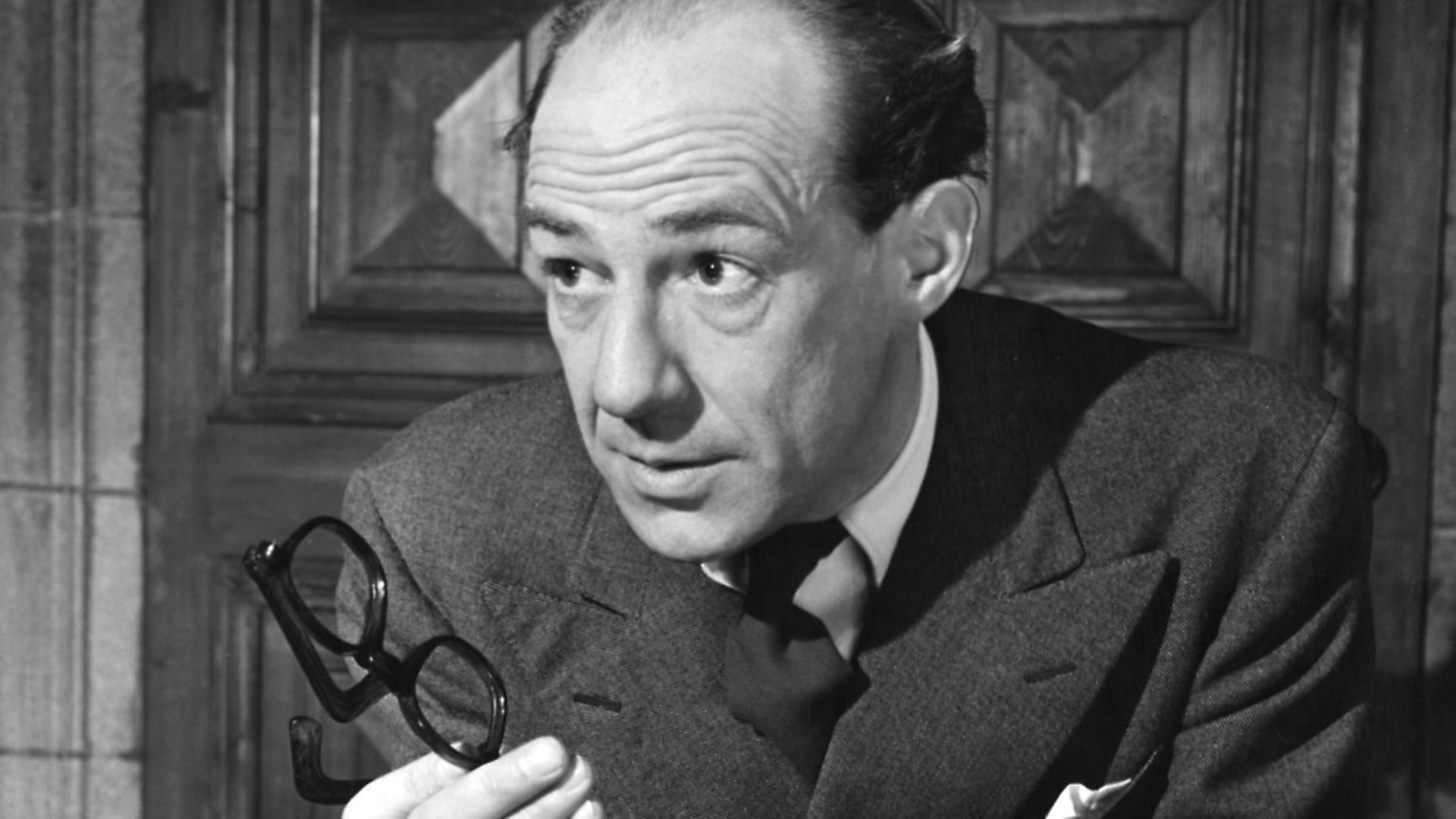
TIM WALKER remembers his 1986 meeting with the distinguished star of stage and screen.
When Richard Burton uttered the immortal words ‘Broadsword calling Danny Boy’ on his transmitter in the film Where Eagles Dare, it was Michael Hordern who picked up at the other end. For a distinguished stage actor whose career spanned more than half a century – the King Lear he played at Stratford in 1969 is the stuff of legend – he was grimly reconciled to the fact he’d probably be most remembered for a minor role in that creaky old war film.
‘That was a particularly daft one, but, to be honest, I’ve never taken all that much satisfaction in any film as you can never really get into a character,’ he told me. ‘Just when you start to feel you are, someone shouts ‘cut,’ so it feels like trying to run a marathon in instalments. You can’t get into your stride.’
I caught up with Hordern in 1986 when, after losing his wife Eve a few months earlier, he lived in a somewhat cluttered and chaotic flat high up in an old block in Chelsea in central London. On the floor lay the damp pages of a script upon which he’d just spilt a mug of coffee. He was then 76 and admitted he had never realised quite how hard his wife must have toiled to keep the flat clean and tidy.
His year of personal trauma had, however, seen a revival of his professional fortunes after he had a hit playing an eccentric old vicar in a television adaptation of John Mortimer’s Paradise Postponed. Success seemed to him, however, to be little more than an encumbrance. His telephone was ringing off the hook with calls from journalists in Australia where it was about to be screened. ‘No, Sir Michael isn’t here,’ he said emphatically to one caller in his all-too-familiar voice.
I suggested we adjourn to a restaurant over the road for a bite to eat. A bottle of Sancerre soon helped to make him wonderfully indiscreet. He talked about all the things actors aren’t supposed to talk about – doing advertisements (‘I get a twinge of guilt every time I do one, but they are so very remunerative’), colleagues (‘Rex Harrison was impossible as a director – I nearly decked him’), job offers (‘they want me to do a play at Chichester, but I can’t be bothered’), and what a nightmarish time he’d had up at Stratford during Trevor Nunn’s period in charge (‘I’ve nothing against Trevor, but, in all honesty, I didn’t feel there was anyone on the bridge’).
Committing perhaps the ultimate sacrilege, he even had a go at theatre audiences. ‘About four weeks into the run, there aren’t any more intelligent audiences to be had. You get people laughing in all the wrong places and they’re silent when something very funny has just been said. That’s actually the main reason why I find a long run so exhausting. It isn’t that I haven’t the stamina. I haven’t the patience.’
He let slip that he’d been offered the part of Doctor Who when William Hartnell gave it up, but he felt it wasn’t his scene. The part he’d yearned for had been the title role in Rumpole of the Bailey, and, while he knew its creator John Mortimer well, it went instead to Leo McKern and he admitted he was ‘heartbroken’. Still, he said he’d taken some consolation in narrating an animated BBC adaptation of Michael Bond’s Paddington Bear books which had been ‘a lot of fun’.
The charming but slightly dotty characters that Hordern made his own on stage and screen were often not entirely unlike the man himself, but he kept apologising throughout our lunch for being boring. ‘I don’t mind at all being boring, even if it can be a bit of a strain on other people. I can only apologise. I think as an actor it’s so much easier to assume someone else’s character when you haven’t got one of your own.’
When we’d met, Hordern had just under a decade to live, and, as modest and self-deprecating as he was, it seemed to me he had worked out what mattered in life and what didn’t. After all he had achieved – his fine performances as Prospero, Lear, Sir Anthony Absolute, George in Jumpers, not to mention a CBE and a knighthood – he told me he’d lately had the salutary experience of overhearing two little boys squabbling as he’d made a call in a telephone box. ‘When I finally emerged, one of them asked me if I was by any chance Paddington bear.’









